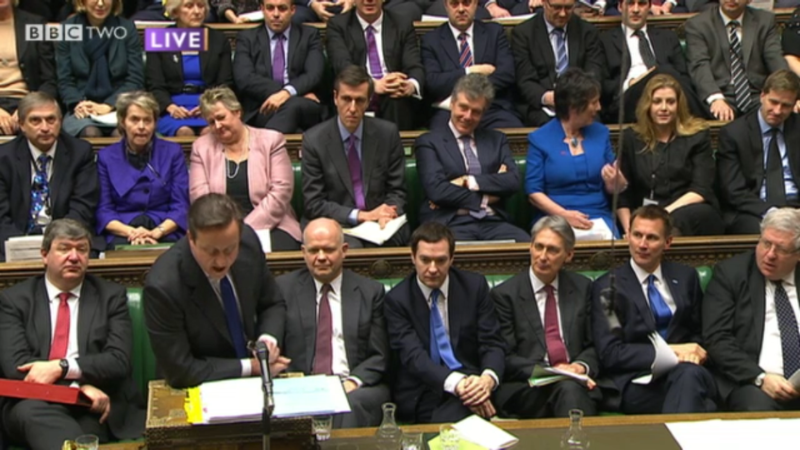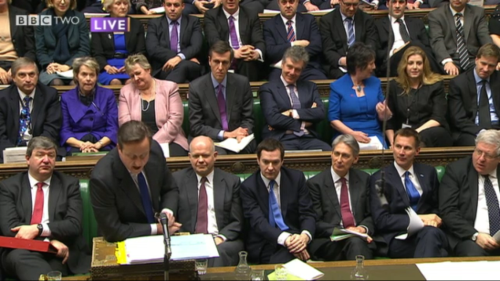
In his big speech on public sector reform this week, Ed Miliband made reference to “public servants who work tirelessly, day in day out, often for low wages, to serve the public”.
However fleeting this mention of public sector wages might be, I take some encouragement from it.
For too long now, depressed pay in the public sector has been an issue that front line politicians have avoided. As far as the right is concerned, this is not something we’re supposed to talk about. The myth of a “pay premium” and “gold plated” remuneration in the public sector has been peddled for so long it has become received wisdom for some, most notably on the front benches of the ruling Tories, but elsewhere too.
In the minds of Ministers, the reasons for targeting public sector pay are many and varied – ideological, cultural and fiscal.
But politics, as they say, is the language of priorities, and there is something very particular about the public sector workforce which may have contributed to it being dumped at the bottom of David Cameron’s list of things to care about.
My question to our almost entirely male Cabinet is this: what is it about the predominantly female public sector workforce that makes you think it is fine to punitively cut their pay?

Women dominate the large employer groups in our public sector: 69% of police staff, 75% of local government staff, 80% of non-medical NHS staff, and 93% of teaching assistants are women. Overall the figure for women in the public sector sits at 66%.
Let’s take an example from the public sector where wages and conditions have been most severely hit.
In domiciliary care, 84% of workers are women. As the Resolution Foundation discovered in their report “Does It Pay to Care” between 160,000 and 220,000 direct care workers are likely to be on less than the National Minimum Wage. That’s the National Minimum Wage, our legal minimum.
Add in fragmentation, zero hours contracts and cuts to sick pay, and you have what the Resolution Foundation describe as a “national scandal”. But is it a scandal that any government, of whatever stripe, would tolerate in a male dominated area of employment? I doubt it.
And this isn’t just about those on extreme low pay.
For many public service workers who have been on a virtual pay freeze since 2010, inflation has cut 16% out of the value of their pay packet since 2010.
A recent study carried out for UNISON by the New Economics Foundation showed that there are now a million people delivering public services, either in-house or outsourced, who are low paid – on less than 60 per cent of the median. In local government, one in four is now low paid, earning below the Living Wage.
In this context, claims from our Chancellor that a mainly female public sector workforce is enjoying a “pay premium” are not just inaccurate, but also deeply insulting.
Gender inequalities in pay are not an issue of productivity, as some claim, but of pricing.
‘Men’s work’ is generally given a higher value both socially and economically. Jobs traditionally done by women, such as caring roles concentrated in the public sector, are undervalued and are often paid less than jobs traditionally done by men.
The Coalition’s decision to target public sector pay is making this situation dramatically worse.
At UNISON we reject the divide and rule mentality which sets public sector worker against private sector.
But we also reject the view, which seems to have permeated this government, that there is no price to pay for holding down public sector pay. There most certainly is, and it is being disproportionately paid by a female workforce.
Plans to continue to hold down their pay until 2017 and beyond might seem reasonable to the privately educated men who constructed this disastrous austerity programme, but our members will not accept it.
When injustice is piled upon injustice in this way, there comes a point when they will be forced to fight back.
Karen Jennings is UNISON Assistant General Secretary for Bargaining, Negotiating and Equalities



More from LabourList
Lou Haigh to reveal ‘roadmap’ for public ownership of railways within first term
Rochdale Labour says brick thrown at candidate’s home with ‘f*** Labour’ note
‘Frank’s poverty mission lives on at his charity – but he’d scrap two-child cap’